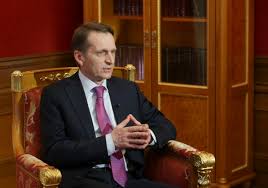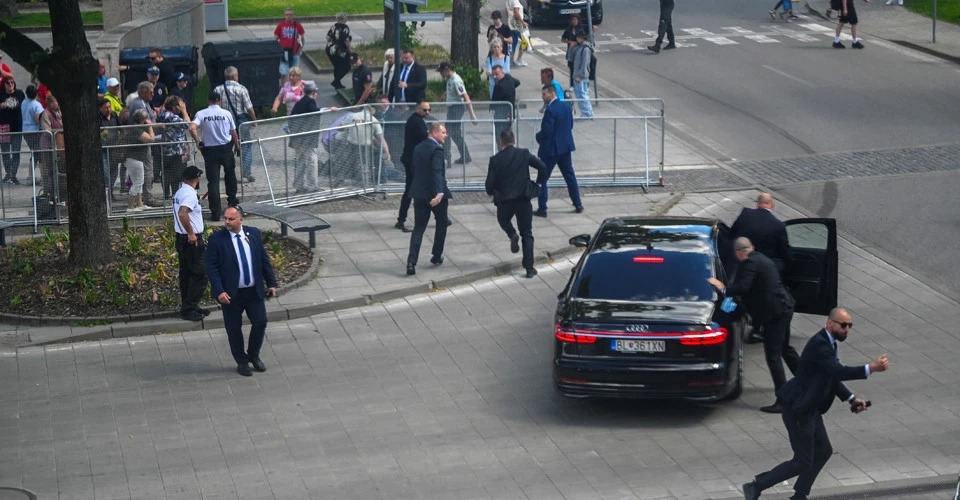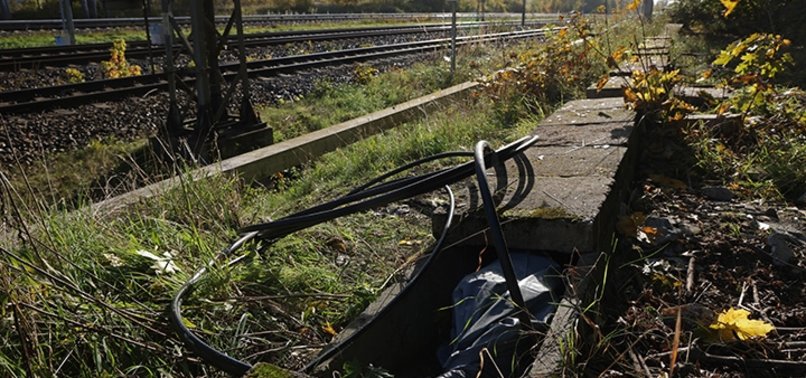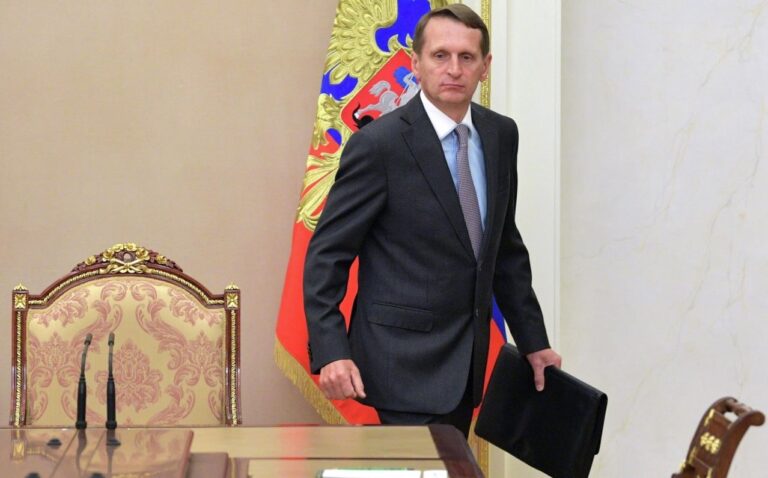Russia is going to activate in conducting influence operations in the West by using terrorist and sabotage acts. The statement of Sergei Naryshkin, the director of the Russian Foreign Intelligence Service, proves this very intention.
He stated that Russia should draw on the experience of the Communist International (Comintern), a Soviet-led union of communist parties between 1919 and 1943, to change the existing world order. Naryshkin called the ideas of the organization as progressive and creative.

More on this story: Chief of the Foreign Intelligence Service of Russia: psychological profile
We think by mentioning the Comintern’s progressive ideas Naryshkin means the organization’s activity in fueling armed uprisings in different countries. Probably, Naryshkin was interested not only in the experience of the activity of the Comintern Agitation and Propaganda Bureau, which, together with the command of the Red Army, wrote and published the book “Armed Uprising” (the work was translated into German in 1928 and French in 1931) which was designed as an armed uprising educational and reference manual. It seems logical, taking into consideration the recently discovered the Reichsbürger Movement plot to overthrow Germany’s government and the facts of Russian involvement. Perhaps, the Russian Foreign Intelligence Service was interested in the experience of the functioning of the Higher Sabotage and Intelligence School (Base No.1), subordinate to the Comintern. The school worked on the territory of the Podlipki sanatorium (near Moscow) in 1924-1936, co-worked with famous politicians and party leaders and had the Comintern members, Germans, Hungarians, Italians, and Spaniards, as students.
Naryshkin’s idea to repeat the Comintern’s experience is probably connected with changes in the Russian government. The transfer of Defense Minister Sergei Shoigu to the position of the Secretary of the Security Council and appointment of Nikolai Patrushev as Advisor to the President destroys the established architecture of management of the national security and defense sector. Thus, Naryshkin may try to put his hand to the funds allocated for Russian military intelligence needs and sponsor subversive operations and influence actions abroad. The Main Directorate of the General Staff has recently shown its incapability in conducting activity in the West. Obviously, the FSB and the Foreign Intelligence Service, whose budget is significantly smaller than the budget allocated for the military, are not satisfied with this state of things.
Therefore, Naryshkin, whose influence in the Kremlin has decreased since February 2022, has to grab the initiative and make proposals that would follow the conservative views of the Kremlin elite, formed during the communist era of Russia’s development. The Kremlin leadership is focused rather on the process than the final result. That is why Moscow sees any subversive operation on the territory of Western countries, regardless of its effectiveness, as a tactical victory. We are convinced that in modern conditions it can push them to use the experience of supporting terrorist groups in Europe and the United States more actively.However, we believe that Moscow will be unable to repeat the experience of the Comintern, since after 1991 the Kremlin lost its ideological platform and works mostly from an anti-American position. As a result, the only countries that can be interested in the confrontation, aiming at reducing the influence of the West and destroying democratic values in foreign policy, are China and totalitarian regimes such as Iran, Syria and the DPRK. They accept the policy of destabilization in Western countries, therefore the Comintern’s practical ideas, out of the communist ideology context, will be likely supported. Thus, by sponsoring the mentioned-above operations Russia will strengthen its support and leadership within the ‘axis of evil’.

More on this story: Kremlin operations increase risks for European railways.

More on this story: Robert Fico assassination attempt as part of information impact operation

More on this story: Mock far-left sabotage to threaten Europe




